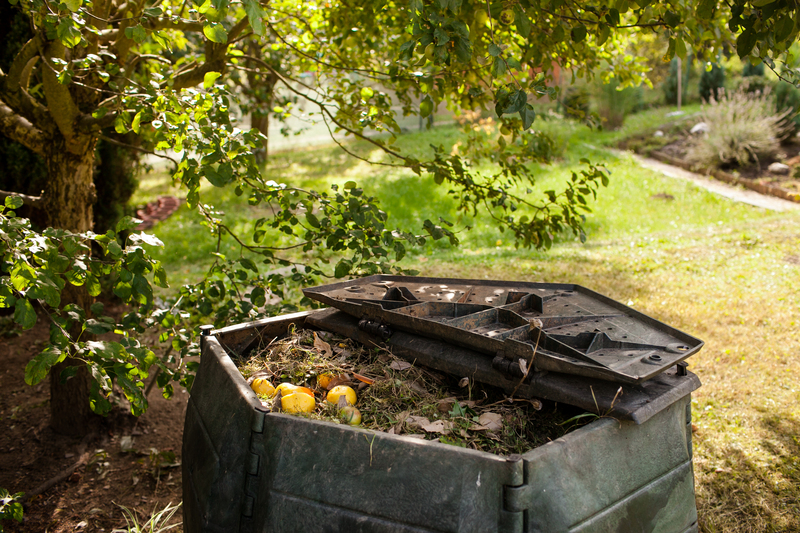In today's world, adopting an eco-conscious lifestyle is not just a trend; it's a necessity. Transitioning to a more sustainable home life can significantly reduce your carbon footprint, conserve natural resources, and save you money. Here are some easy steps to integrate eco-friendly practices into your home life.
Understanding Eco-Conscious Living
Eco-conscious living, also known as sustainable living, involves making choices that limit your environmental impact. It encompasses reducing waste, minimizing energy consumption, and opting for environmentally friendly products. Making small changes in your daily routines can have a significant impact on the environment.
Benefits of an Eco-Conscious Home
- Reduced Energy Bills: Implementing eco-friendly practices can lead to financial savings by cutting down on energy and water usage.
- Better Health: Using natural products and reducing pollution contribute to a healthier living environment for you and your family.
- Environmental Impact: Every small change helps reduce your carbon footprint, contributing positively to the planet.

Step-by-Step Guide to an Eco-Friendly Home
1. Energy Efficiency
Improving the energy efficiency of your home is the first step toward sustainable living. Here are some tips:
- Switch to LED Lighting: LEDs use less energy and last longer than traditional bulbs.
- Invest in Energy-Efficient Appliances: Look for the ENERGY STAR label when purchasing new appliances.
- Install a Smart Thermostat: These devices help you manage heating and cooling efficiently, reducing energy waste.
- Insulate Your Home: Proper insulation reduces the need for excessive heating or cooling.
2. Water Conservation
Conserving water is crucial for a sustainable home. Follow these easy steps to reduce water usage:
- Fix Leaks: Check faucets, toilets, and pipes for leaks and repair them promptly.
- Use Water-Saving Fixtures: Install low-flow showerheads and faucets to reduce water consumption.
- Limit Shower Time: Shortening your showers by a few minutes can save gallons of water.
- Collect Rainwater: Use rain barrels to collect water for outdoor use.
3. Reduce, Reuse, Recycle
Embracing the three R's--Reduce, Reuse, Recycle--can dramatically decrease the waste your household generates.
- Reduce Waste: Buy in bulk, use reusable shopping bags, and avoid single-use plastics.
- Reuse Items: Repurpose old items instead of discarding them. For example, glass jars can become storage containers.
- Recycle Properly: Familiarize yourself with local recycling guidelines to ensure proper sorting.
4. Sustainable Eating Habits
Your diet can significantly affect your environmental impact. Here's how to make eco-conscious food choices:
- Eat Local and Seasonal: Support local farmers and reduce the carbon footprint associated with transporting food.
- Limit Meat Consumption: Reducing meat intake can lower greenhouse gas emissions.
- Grow Your Own Food: Start a small garden to enjoy fresh produce right from your backyard.
- Compost Food Waste: Composting reduces landfill waste and creates nutrient-rich soil.
5. Eco-Friendly Cleaning
Switching to natural cleaning products not only helps the environment but also reduces exposure to harmful chemicals.
- DIY Cleaners: Make cleaning solutions using ingredients like vinegar and baking soda.
- Use Non-Toxic Products: Choose eco-friendly brands that avoid harsh chemicals.
- Buy in Bulk: Reduce packaging waste by buying cleaning supplies in bulk sizes.

Advanced Eco-Friendly Measures
Once you've mastered the basics, you can explore more advanced strategies to enhance your home's sustainability even further.
1. Solar Panels
Installing solar panels can significantly reduce your reliance on traditional electricity, cutting down your utility bills and reducing carbon emissions.
2. Rainwater Harvesting Systems
Beyond simple rain barrels, consider a complete rainwater harvesting system to sustain your household's water needs.
3. Green Roofing
Consider installing a green roof. This not only provides insulation but can also be a habitat for local wildlife.
4. Sustainable Home Renovations
When renovating, choose sustainable materials like bamboo or recycled metal, and prioritize energy-efficient designs.
Conclusion
Transitioning to an eco-conscious home life is a journey that involves making small daily changes. By integrating these easy steps, you can contribute to a healthier planet while enhancing the comfort and health of your living space. Start today, and embark on your journey towards a more sustainable lifestyle.
Remember, every effort counts in making a difference for the environment.